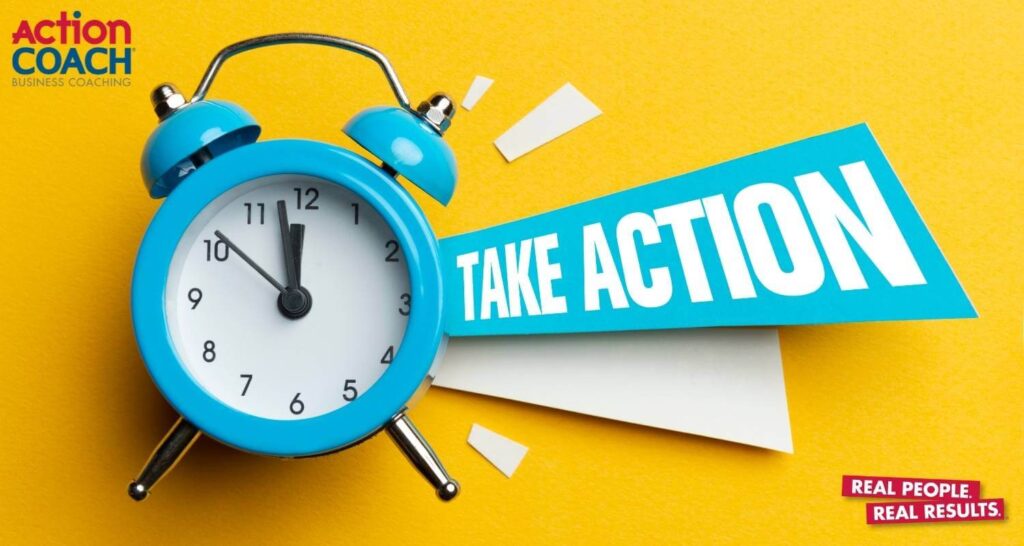Do You Know How to Avoid Bankruptcy?
Are you a small business owner who is struggling to keep your head above water? Are you worried about the possibility of bankruptcy? If so, you are not alone. Every day, small businesses all over the country file for bankruptcy. This blog post will provide 8 insolvency advice for small businesses that will help you avoid bankruptcy. We will also offer tips on how to get your business back on track!
1. Take Action

If you are a small business owner facing insolvency, the first thing you need to do is take action. The longer you wait, the worse things will get. Many small businesses file for bankruptcy because they wait too long to take action. If you are insolvent, you need to act fast!
The second step is to develop a realistic budget. This budget should include all of your income and expenses. Once you have set a budget, stick to it! Do not underestimate your expenses or overspend your income. This will only put you further into debt.
Why Should You Set a Realistic Budget to Avoid Insolvency
- One of the main reasons you need to set a realistic budget is that it will help you get your business back on track. A realistic budget will help you track your income and expenses to stay within your budget. If you overspend your income or underestimate your expenses, you will only put yourself further into debt. Debt is one of the leading causes of insolvency.
- Another reason you need to set a realistic budget is that it will help you make wise financial decisions. You will be less likely to make impulse purchases when you know exactly how much money you have to work with. This will help you save money and avoid debt.
A realistic budget is essential for any small business that is struggling financially. If you do not have a budget, now is the time to create one. If you need help creating a budget, ActionCOACH can help you for free!
Recognising & identifying the problem is key to a successful future.
Although the term “insolvency” is frequently used loosely, many people don’t understand the implications or how it affects their lives.
Directors who make decisions without understanding their responsibilities and legal consequences will cause financial stress for the company. Directors could be held responsible for the business’s debts.
Do not ignore the problem
Many directors are forced to liquidate their companies because they ignore the problem. It is not a good idea to bury your head in the sand. This is the main piece of advice you should take throughout your career as a director of a company: seek professional help at the first sign that trouble is coming!
Reduce Your Expenses

The second step is to reduce your expenses. Take a close look at your budget and see where you can cut costs. Remember, every little bit helps! You may need to make some tough choices, but reducing your expenses is necessary to avoid insolvency.
How to Reduce Your Expenses as a Small Business
There are several ways to reduce your expenses as a small business.
- One of the best ways to start is reviewing your budget and seeing where you can cut costs. You may need to make some tough choices, but it is essential to do whatever you can to reduce your expenses.
- Another way to reduce your expenses is by negotiating better deals with your suppliers. Many small businesses are afraid to negotiate, but it is essential to remember that the supplier wants your business just as much as theirs. If you can negotiate a better deal, both parties will benefit.
- You can also reduce your expenses by streamlining your operations. This means eliminating unnecessary or redundant processes. Streamlining your operations will help you save time and money
Need more Help? Read Business Growth Tips for SMEs: 11 Strategies to Help You Grow Your Business
3. Increase Your Income

The third step is to increase your income. If you are insolvent, chances are your income has declined. To avoid bankruptcy, you need to find ways to increase your revenue.
How to Increase Your Income as a Small Business Owner to Avoid Insolvency
There are a number of ways to increase your income as a small business owner. One way to do this is to sell assets that you no longer need. Another way to increase your income is by finding new customers or clients.
You can also increase your income by offering new services or products. If you have struggled to find new customers, consider expanding your product or service line. This will help you attract new customers and grow your business.
Another way to increase your income is by increasing your prices. This may be a difficult decision, but you will generate more revenue if you can charge more for your products or services. Be sure to research the competition and make sure you are charging a fair price.
Increasing your income is essential for avoiding insolvency. If you are struggling to generate revenue, take a close look at your business and see where you can make changes. ActionCOACH can help you develop a plan to increase your income and avoid insolvency.
How to Implement Business Process Management in a Small Business
Avoid wrongful trading
Although you will want to save your company at all costs, avoiding personal liability through wrongful trading – continuing to accumulate debts when you know you aren’t able to pay them back – is obviously preferable.
4. Negotiate With Creditors

The fourth step is to negotiate with creditors. If you are insolvent, your creditors may be willing to work with you. To avoid insolvency, you need to negotiate with your creditors and come to an agreement on how you will repay your debt. This may include a payment plan or a reduction in the amount of debt you owe.
Creditors are constantly under pressure
This could indicate that your creditors, lenders and credit card companies are pestering you more often than usual. You must respond quickly to messages asking for immediate payment to avoid being fined or threatened with repossession.
How to Effectively Negotiate With Creditors to Avoid Bankruptcy
When you are insolvent, your creditors will be more willing to work with you. To prevent bankruptcy, you need to negotiate with your creditors and come to an agreement on how you will repay your debt. This may include a payment plan or a reduction in the amount of debt you owe.
To negotiate with creditors effectively, you need to approach them with a proposal. This proposal should include the following:
- How much money you can afford to repay each month
- A payment schedule that outlines when you will repay the debt
- An explanation of why you became insolvent and what you have done to fix the problem
Your creditors are more likely to agree to a repayment plan if they believe you are taking steps to fix the problem. ActionCOACH can help you develop a plan to negotiate with your creditors and avoid insolvency.
A fresh start agreement is an insolvency procedure that allows you to repay your debts over a period of time. This agreement is between you and your creditors. To qualify for a new start agreement, you must be insolvent and have a regular income.
Under a fresh start agreement, you and your creditors will agree on a repayment plan. This repayment plan will outline how much you will repay each month and when the debt will be repaid in full. Once the agreement is in place, you will make payments to your creditors according to the schedule.
A fresh start agreement can help you avoid insolvency by giving you time to repay your debts. If you struggle to repay your debts, consider contacting ActionCOACH to learn more about this insolvency procedure.
5. Get Professional Help

The fifth step is to get professional help. If you are insolvent, it is important to seek professional help. Many companies specialise in helping small businesses avoid insolvency. These companies can help you develop a plan to get your business back on track.
ActionCOACH can help you avoid insolvency by providing insolvency advice for businesses. We can help you develop a plan to increase your income and repay your debts. We can also help you negotiate with creditors and enter a fresh start agreement. If you are insolvent, ActionCOACH can help you get your business back on track.
6. Develop a Plan

The sixth step is to develop a plan. If you are insolvent, you need to develop a plan to get your business back on track. This plan should include all of the steps we have outlined above. You need to be realistic about your goals and objectives. Do not set yourself up for failure by setting unrealistic goals.
7. Stop Procrastinating

The seventh step is to stop procrastinating! The longer you wait, the worse things will get. If you are insolvent, you need to take action now! Implement the plan you developed in step six and take the steps needed to avoid insolvency.
8. Never Give Up

The eighth and final step is never to give up! Insolvency is a difficult situation, but it is not impossible to overcome. If you are insolvent, do not give up! Take action and follow the steps we have outlined above. You can avoid insolvency and get your business back on track with perseverance and hard work!
We hope you found this blog post helpful. If you are a small business owner facing insolvency, we encourage you to implement strategies to avoid it at all cost! Implement the steps outlined above and get your business back on track.
Small play a vital role in any economy, and insolvency can have a ripple effect, not just on the business itself but also on employees, suppliers and the local community. ActionCOACH provides insolvency advice for small businesses and has helped many companies avoid insolvency through its Business Rescue service. We will work with you to create a plan to help your business get back on track.
Contact us today at 01442 773310 or email westherts@actioncoach.co.uk for a FREE Business coaching session.






Comments
Comments are closed.